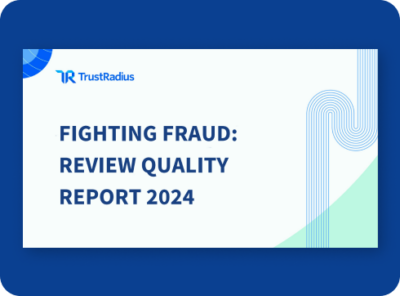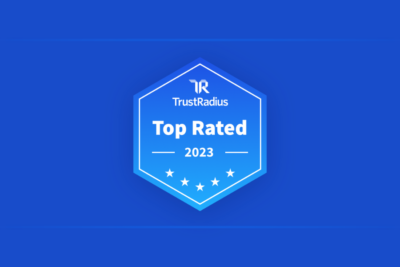
Vinay Bhagat
January 27, 2013
Transparency Coming to B2B Technology Marketing
The last decade has seen B2B technology marketers adapt to many shifts in distribution model and buyer behavior. Like consumers, business buyers are increasingly doing research online before talking to a vendor. In response, B2B marketers have significantly expanded their content marketing efforts by “providing valuable information or entertainment that stops short of a direct sales pitch or call to action, which seeks to positively influence a customer in some way.” This strategy has been quite effective, but remains a far cry from content available to consumers. Consumers are empowered to do comprehensive research prior to a decision through peer reviews and forums.
B2B marketers have an opportunity to differentiate themselves and increase marketing efficiency by embracing transparency – encouraging customers to share unfiltered perspectives, and empowering prospects to access this feedback. It is inevitable that business buyers will come to expect the same transparency they have as consumers. Today’s business oriented information sharing forums are however inadequately serving this need and a new forum needs to emerge to fully realize this opportunity.
The Rise of Content Marketing in B2B
A recent Corporate Executive Board study of more than 1,400 B2B customers found that those customers completed, on average, nearly 60% of a typical purchasing decision — researching solutions, ranking options, setting requirements, benchmarking pricing, and so on — before even having a conversation with a vendor. Reacting to this trend, B2B marketers have expanded their efforts to provide educational content like case studies, white papers, best practice guides, etc. This strategy has been quite successful. A 2012 survey of 299 technology buyers at large enterprises by the ITSMA (IT Services Marketing Association) found the following responses when asking, “What were the first three sources of information you turned to when you began your information search?”- Solution provider websites – 36 votes.
- Technology or solution provider subject matter experts – 29 votes.
- Web search – 28 votes.
- Solution provider sales people – 27 votes.
- Peers/colleagues – 27 votes.
- Peers – 78 votes.
- Solution providers – 60 votes.
- Industry analysts – 41 votes.
- Web search – 37 votes.
Insights From B2C
As consumers, we have grown accustomed to relying upon peer intelligence to inform many of our purchase decisions. To quote The Consumer Journey by McKinsey & Company:“In today’s decision journey, consumer-driven marketing is increasingly important as customers seize control of the process and actively pull information helpful to them. Our research found that two-thirds of the touch points during the active-evaluation phase involve consumer driven marketing activities, such as Internet reviews, word of mouth recommendations from friends and family, as well as in-store interactions and recollections of past experiences. A third of the touch points involve company driven marketing. Traditional marketing remains important, but the way consumers make decisions means that marketers must move aggressively beyond push-style communication and learn to influence consumer driven touch points, such as word of mouth and Internet information sites.”Consumer driven marketing (word-of-mouth, online/offline reviews) is important for all stages from initial consideration to closure, but particularly so during the active evaluation phase, when a consumer has decided to buy a type of product, but has not yet decided on the specific brand.
B2B Information Sharing Forums Today
The options for business professionals to get peer intelligence are far more limited than for consumers. Information exchange often occurs informally through contacting people that you know or can easily reach. However, most people have finite networks, so getting sufficient input is challenging. Information exchange also happens in private online forums and email listservs, but information shared tends to be limited and historical data is hard to search. Moreover, many forums suffer from a high “noise to signal” ratio, i.e. the bad content drowns out the good, leading people to tune out. Many forums are also confined to a limited universe of participants, so they lack diversity in perspective. LinkedIn has achieved massive scale, and information exchange occurs within Q&A forums and groups. However, with limited to no moderation in many areas, quality content is easily overwhelmed by promotional posts, leading people to tune out. Additionally, many people do not feel comfortable providing candid feedback in a completely open forum. Some are worried about jeopardizing their relationship with a vendor. Others have corporate policies of not openly endorsing vendors. Instead, they would prefer to be able to control who sees their identity. Lastly, information shared is rarely comprehensive and well structured. Quora has emerged as an interesting venue for idea exchange. However, the conversations are so diverse, that there’s limited focused discussion on topics like enterprise technology. Moreover, many questions tend to be answered by vendors or customers prompted by vendors. The AppExchange by Salesforce.com provides ratings and reviews on a large number of related applications, but unfortunately, the content has become so “gamed” rendering it not that helpful. The vast majority of reviews on the site score products a 5/5, which is hard to believe for any enterprise technology product. Additionally the text reviews that accompany the ratings tend to be very superficial. Some have also alleged that reviews are censored. To quote one AppExchange member providing open feedback:“In past searches for certain types of applications through AppExchange, I have been extremely disappointed at the poor quality of some of the offerings. The problems I encountered were definitely not reflected in the ratings or reviews offered in AppExchange, and I wonder now if that is because the negative reviews were censored. The whole point of a rating system is to give potential buyers reliable, real feedback from users. Sure, censor expletives, but not real objective reviews.”
The Need for A New Forum
The desire of B2B buyers to do research online, the extensive use of peer intelligence in consumer decision making, and the lack of effective forums for B2B information exchange today all lead me to believe that a new forum is required in order to fully harness the opportunity. Such a forum will need to balance the participation of the crowd with moderation and curation for quality control. With such a forum, it is inevitable that peer insights will become as important for B2B decision making as they are for B2C today. Vendors who embrace transparency and have positive reputations will:- Lower marketing and sales expense as more opportunities are derived based upon word of mouth and peer reviews versus traditional marketing and sales prospecting.
- Achieve higher win rates as buyer objections are addressed by customer reviews.
- Identify new customer evangelists/references.
- Receive authentic feedback, to improve offerings and service level, and to realize new monetization opportunities.




